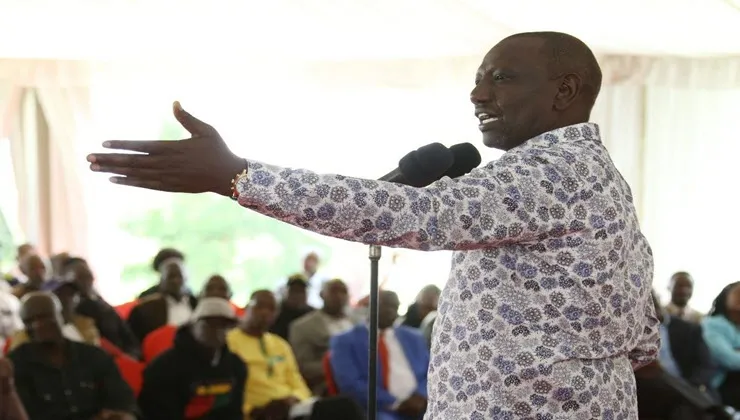In a bold move that has sparked widespread conversation across social media platforms, President William Ruto has proposed a groundbreaking approach to gender equality within Kenyan politics. During a vibrant rally, President Ruto suggested a policy shift that could see male presidential candidates from the ruling United Democratic Alliance (UDA) party selecting female running mates for the upcoming 2027 elections.
The president’s remarks come as a proactive step towards addressing gender disparities in political representation. “When Riggy G (Deputy President Rigathi Gachagua) and I decide on the future, we must also ensure that if a man is a presidential candidate, then a woman must be the running mate, and vice versa,” declared Ruto to an enthusiastic audience.

This initiative is not just limited to the presidency but extends to gubernatorial and other leadership roles within the party. The president emphasized the need for deliberate actions to achieve the constitutional two-thirds gender rule, which seeks to prevent any one gender from holding more than two-thirds of elective or appointive positions.
“We must be deliberate and intentional about it; otherwise, it will never happen,” Ruto stated, highlighting the importance of intentional policy-making to foster gender balance.
The president’s confidence that other party leaders will embrace this proposal underscores a collective effort to promote gender equality. “We will do this not because we want to do anything against men but because we want to balance so that we move together,” he added, reinforcing the notion of progress through unity.
The reactions to President Ruto’s statements have been mixed, with some lauding the initiative as a step forward for women’s representation, while others question the feasibility and sincerity behind the proposal. As the debate continues, it is clear that the president’s comments have ignited a crucial dialogue on gender equality in Kenya’s political sphere.
As the country looks ahead to the 2027 elections, the UDA’s commitment to gender parity will be closely watched by both supporters and skeptics alike. This development marks a significant moment in Kenya’s journey towards inclusive governance and equal representation.



